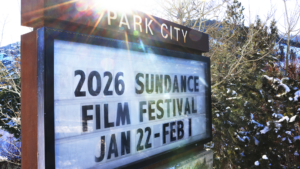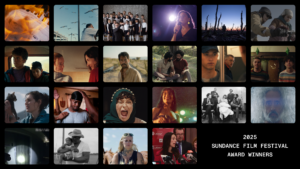Jerry Rothwell, Director, Town of Runners
An hour before our screening in Tacoma’s Grand Cinema, runners have already begun to gather. Screening Town Of Runners around the world, I’ve come to appreciate the strength and depth of the global running community. In almost any town, people organize themselves around their passion for running, forming groups that cut across boundaries of race, class, culture and wealth, which become a powerful force for connecting people in their community.
Tacoma, where we’re bringing the film as part of the FILM FORWARD programme, is no exception. One of the founders of Tacoma Runners, Derek Young, recounts how a few friends were inspired by the Park Run movement in Britain to run regularly together and tweeted an open invitation. Soon hundreds began to show up and now they run twice a week, with a free timed 5k at the weekend.
Our screening in Tacoma coincides with the weekly Beer Run (that’s run then beer, not the other way round). This isn’t a typical documentary cinema audience, but it’s a chance to connect a group with a shared interest in a sport, to the experiences of a community in Ethiopia, half a world away, and to talk about its themes. The discussion circles around how communities can support the aspirations of their young people. What is it that makes Bekoji so successful and consistent in the development of young athletes, and other places – such as one of the regional clubs shown in the film – fail their young people so devastatingly?
Earlier in the day, 780 children assembled in the gym at Truman Middle School in the town, to watch and discuss the film – perhaps our largest ever single audience. Two days into a new school year, their Principal strikes me as a model for how adults should mentor young people, starting a clear and empathetic dialogue with her new students. She’s decided to build on the Film Forward visit, by dedicating a term’s work to using Town Of Runners for creative work across the curriculum. (We’ll add it to other school’s work about the film, here.)
It’s exciting that the coming-of-age story of Hawii, Alemi and Biruk has such resonance for the kids of Tacoma, which, like Bekoji, is a place in transition. Until recently a thriving industrial port, Tacoma’s youth need to find a different life from their parents’ generation as those industries decline. After the screening there’s lots of questions – about Bekoji and its culture, about what Hawii and Alemi are doing now, and about filmmaking. In later screenings in Tacoma and Seattle (at Meadowdale School, the Northwest African American Museum and Seattle Art Museum) discussions turn to the lessons we could learn from the story, for our own communities.
In his book The Talent Code, Daniel Coyle studied why there are hotspots of talent around the world, small places that produce huge amounts of successful practitioners in sport or music, “from a small music camp in upstate New York to an elementary school in California to the baseball fields of the Caribbean.” Coyle found a common pattern, linked to the way the brain acquires skill – in which the environment, local role models, and supportive coaching were the three critical factors. The presence of all three is clear in Bekoji where the altitude (environment), the athletics success of Derartu Tulu, Kenenisa Bekele and Tirunesh Dibaba (role models) and a dedicated mentor in Sentayehu Eshetu (supportive coaching), have combined for the last twenty years to support young people who want to become runners.
Groups like Tacoma Runners, and the largely volunteer run Grand Cinema, have a key role to play for young people in towns like Tacoma – connecting them to adult role models, whether on the screen or in life, to wider possibilities and to the disciplines and skills they need to reach them. As the young runner Bethlehem says in the film, when she is transferred to a camp which fails to support its runners: “What use are our dreams, if they don’t share them?”




